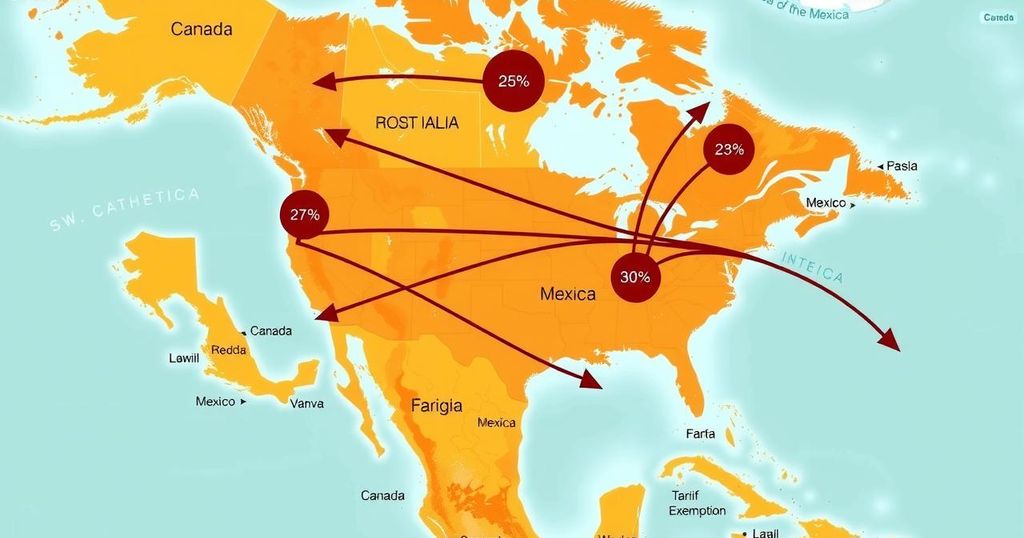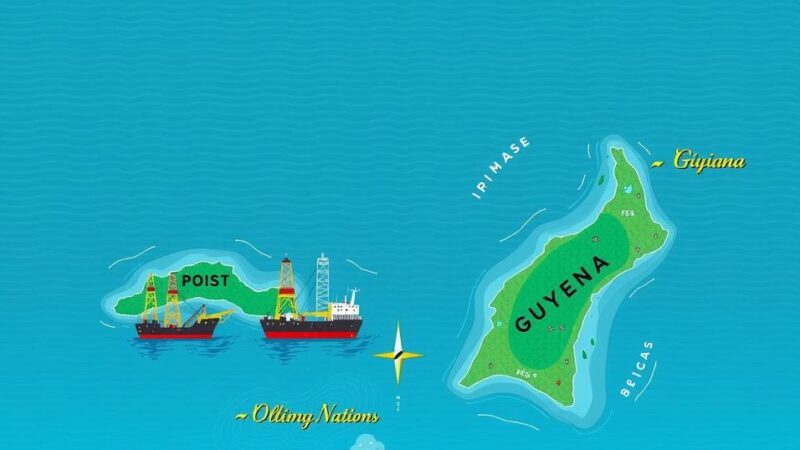Canada and Mexico were exempted from President Trump’s April 2 reciprocal tariffs despite facing existing duties. The exemption stems from current levies already affecting these nations, including 25 percent tariffs. The US-Mexico-Canada Agreement further protects certain goods from new tariffs, allowing both countries to navigate economic challenges.
On April 2, 2024, President Donald Trump announced a series of reciprocal tariffs aimed at various nations, citing grievances of economic exploitation. Notably, Canada and Mexico were conspicuously exempt from these newly imposed tariffs, which range from 10 to 45 percent on imports. Their exemption provided a moment of relief, as they currently face existing tariffs, including a 25 percent levy already in place.
The existing tariffs on Canadian and Mexican goods, including 10 percent duties on Canadian energy and potash, remain influential as Canada and Mexico navigate these economic challenges. Specifically, both nations are already subject to 25 percent tariffs, a situation that will persist despite the recent announcement. The goods benefiting from the United States-Mexico-Canada Agreement are also exempted from these new tariffs.
While Canada and Mexico are spared from the newly announced tariffs, they still confront ongoing tariffs and potential new automotive levies that will be enforced. Canadian Prime Minister Mark Carney remarked on the situation, declaring intentions to combat these tariffs with counter-measures to protect domestic interests. Meanwhile, Mexican President Claudia Sheinbaum is anticipated to address Mexico’s official response at an upcoming press conference.
In connection to the tariffs, several countries face notable adjustments, with India subjected to a 26 percent tariff and the European Union to a 20 percent tariff. Moreover, nations with established sanctions, such as Cuba and North Korea, were omitted from Trump’s tariffs due to limited trade relations. Trump’s decision to impose tariffs on China, which experiences the largest trade surplus with the U.S., stands at an alarming 34 percent, raising concerns about exacerbating trade tensions as he embarks on his 2024 election campaign to increase tariffs significantly.
In summary, Canada and Mexico successfully avoided Donald Trump’s recent reciprocal tariffs due to existing trade arrangements and prior tariff measures. This relief comes amidst a broader and complicated landscape of U.S. tariffs affecting several nations, coupled with ongoing trade negotiations under the US-Mexico-Canada Agreement. Both nations continue to grapple with existing tariffs, underscoring the complexities involved in U.S. trade relations.
Original Source: www.hindustantimes.com






